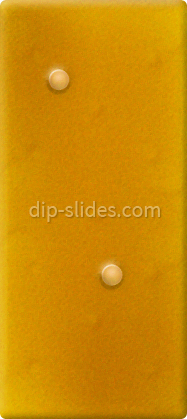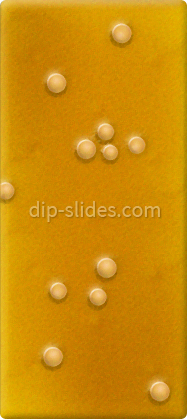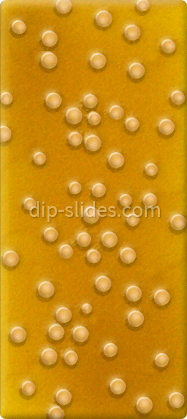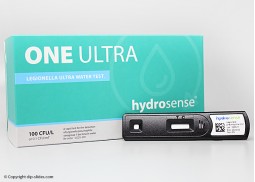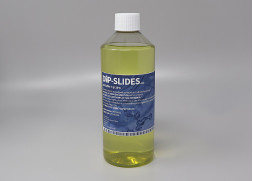This kit will enable you to test the quality and the 'general health' of your cooling water.
This kit will help you comply with:
New York Regulation: 10NYCRR 4-1 Maintenance Program
'(1) a schedule for routine bacteriological culture sampling and analysis to assess microbiological activity at intervals not to exceed 30 days while the cooling tower is in use, and that requires additional bacteriological culture sampling and analysis, as needed, to validate process adjustments;'
Please note, you will also be required by NY law to conduct specific legionella culture tests within 14 days of seasonal start up and at least every 90 days thereafter.
More information: https://regs.health.ny.gov/content/section-4-14-maintenance-program-and-plan
HSE ACOP L8 Maintenance and Testing Guidelines
The ACOP L8 documentation (http://www.hse.gov.uk/pUbns/priced/l8.pdf) refers to document 'Part1: The control of legionella bacteria in evaporative cooling systems' (http://www.hse.gov.uk/pUbns/priced/hsg274part1.pdf) for further technical guidance on cooling systems and how to comply with regulation.
Weekly dipslide / microbiological tests are recommended. Specific legionella culture tests should be conducted at least quarterly.
The kit includes 2 boxes of dipslides, 1 legionella test and an incubator as standard. Select from the dropdowns if you wish to also add the colorimeter or pH, TDS, Temp tester to your kit.
The Kit includes:
2 x boxes of Cooling Water Dipslides
1 x Orion MX8 dipslide incubator
New 1 x Legionella Rapid Test
1 x colorimeter and accessories (optional)
1 x pH, TDS and Temperature handheld meter (optional)
Please see below for more information on each product.
Bacteria, Yeasts and Moulds (Fungi) Dipslides
These dipslides will help you test the 'general health' of your dipslides. High levels of microbiological contaminants can be a breeding ground for more serious microorganisms such as Legionella bacteria. High levels of bacteria could also potentially already include Legionella bacteria. However, these are not Legionella specific tests.
As detailed in our article 'Dipslides for legionella testing'
"If bacteria is present, we suggest that you conduct further tests to see if Legionella is one of the organisms in the system. Even if legionella is not identified, the presence of other organisms can support legionella by producing the organic nutrients that it needs to thrive.
Contaminants can also corrode and damage equipment / systems such as pipes which can affect the flow of water making it ideal for legionella to grow. This is why it is highly recommended that you test for all bacteria and keep all contaminants under control."
The HSE recommend weekly dipslide tests and quarterly legionella specific tests (at least). Legionella specific tests would need to be more frequent if high levels of microbiological contaminants show on the dipslides.
These dipslides test for total count (aerobic bacteria /microbes) on one side (nutrient agar) and yeasts and moulds (malt extract agar) on the other. The Nutrient agar side has red spot dye which means that colonies will grow as red dots which makes them easier to count. Below you can view our dipslide comparison chart which includes HSE guidelines for appropriate colony forming units / ml levels.
Dipslide incubator (8 dipslide capacity)
This dipslide incubator allows you to incubate 8 dipslides at once. The temperature is pre-set to 30 Degrees Celcius and will provide the constant and stable temperature that the dipslides need to provide accurate results. The incubator comes with a lid for protection which is ideal for industrial sites.
The incubator runs from 12 Volts DC. This incubator comes complete with a mains power pack (100-240v AC) with plug compatibility for UK, Europe, Australia and America. Dimensions of the incubator are as follows:
Dimensions: 22 x 13 x 15(H) cm
Global shipping is available for this kit at competitive prices and with a rapid service. Add the items to your basket and view your cart to calculate shipping costs for your location. You will need to add an address to your account to do this. Please note that there is currently a 2 - 3 wait / lead time on this kit.
If you are based outside of the UK, please consult your equivalent of the HSE for guidance on regulations and good practice. Always consult your own health and safety regulators. The above information should only be used as general guidance and should not be relied upon as a basis for any risk assessments / health and safety policies / regimes. It is the responsibility of the customer to ensure that all industry / government standards / regulations are met. Information was deemed to be correct at the time of writing.
Legionella Rapid Test - Results in 25 minutes
Simple and easy to use test that is ideal for onsite testing. This test detects Legionella pneumophila sg1 antigen - the species that causes over 90% of legionnaire's disease cases.
This is a lateral flow test with an easy to decipher 1 or 2 line result. 1 line indicates a negative result, 2 lines indicates a positive result. These tests are very sensitive - 100 CFU / L and allow you to obtain a quick result without transporting samples or waiting for lengthly culture tests.
Full instructions are supplied with the test. For more information, see our legionella test page.
Colorimeter Chlorine Tester (optional)
Chlorine is used to counteract the build up of slime / algae / microbiological contaminants in cooling water systems. Alongside chlorine treatments, chlorine tests should be taken to ensure the necessary / desired residual is maintained.
Maintaining and monitoring the chlorine concentration is important to make sure that the disinfectant regime is effective. Measuring the free residual concentration is needed to maintain good sanitation. The available chlorine levels will decline quickly if there are high concentrations of contaminants in the system.
HSE (UK Health and Safety Executive) recommends measurable free reserves in the range of 0.5–1 ppm (guidance may differ based on where you are located). They also state that:
"In some circumstances, it may be possible to maintain good microbial
control at a lower halogen reserve and in other circumstances, such as more
alkaline pH conditions, it may be necessary to increase the halogen reserve
to compensate for the reduction in biocidal activity."
So it is important that you consult the correct authorities to ascertain what levels are correct for your system. Different values will also apply to different biocides.
It may also be worth noting that the HSE recommend that dipslide tests are taken when the chlorine / biocide residual is at its lowest level:
"The timing of dip slides and other microbial sampling is important. The sampling
point should be remote from the biocide dosing point and for biocides, which are
applied in a shot dose, sampling should be taken when the residual biocide is at its
lowest and ideally performed at the same time each week."
This kit includes a colorimeter that will allow you to test both total chlorine and free / available chlorine.
The colorimeter comes with 2 cuvettes, a cuvette brush, crush / stirring rods, 50 tests for free and total chlorine, instructions and a soft case with belt loop.
The colorimeter in this kit is the Palintest Compact Chlorometer. This colorimeter is ideal for field applications.
Features
Compatible with both liquid and tablet reagents
True chlorine calibration
Very accurate results
Two button operation
Data memory - remembers the last 10 results
Specifications
pH, TDS and Temperature Tester (optional)
If chlorine is used as a disinfectant, the pH of the system should be less than 8 otherwise the chlorine becomes less effective.
Scale formation also needs to be controlled. As detailed by the HSE:
"Scale formation results in loss of heat transfer, reduced flow rates and loss of
efficiency, and contributes to deposition. Legionella can be associated with such
deposits. The scale protects the bacteria and so reduces the effectiveness of any
biocidal treatment."
TDS concentration and high pH levels can contribute to scale formation. Temperature is also a major factor when it comes to scale build up.
These parameters can also affect other complications such as corrosion and fouling. Scaling / corrosion may shelter legionella and other bacteria and help in allowing them to grow. So as well as being a problem in terms of causing damage to components etc, all of these issues can contribute to microbiological contamination problems.
Further to this, micro-organisms can also lead to scale, corrosion and fouling so it can be a cycle of problems causing further problems which is why all parameters need to be tested.
Water temperature also affects microbial growth.
As you can see from above, testing pH, TDS and temperature is extremely important when maintaining a safe and well functioning cooling water system.
This Eutech Elite PCTS tester measures pH, TDS and temperature. It also tests conductivity and salinity. It is compact, waterproof and battery operated (4 x AAA). Carry case and full instructions are supplied with the device.
Below you can see the specifications of the tester.
References:
http://www.hse.gov.uk/pUbns/priced/hsg274part1.pdf
Additional Details
Product Reference : CWTKIT
Internal catalogue reference : DS001-104














